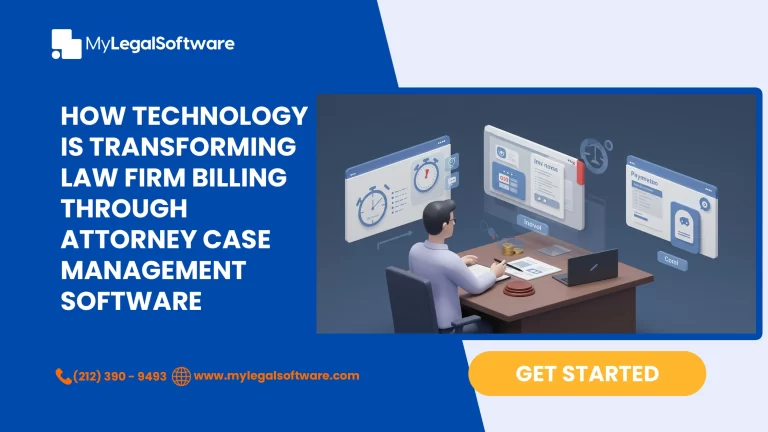Despite the increased number of convicted persons out there, many Criminal Defense lawyers still find it hard to get enough clients.
However, their reasons for struggling may vary from inability to set clear marketing goals, not being able to balance tight work schedules with having a focus on law marketing or not having a working marketing strategy at all.
Furthermore, this write up contains valuable tips and strategies that reveals how Criminal Defense lawyers can market their law firms effectively.
Why criminal defense marketing is crucial
It is crucial for Criminal Defense law firms to scale their practices the right way as this can make them stand out from the stiff competition. Moreover, every year, more attorneys enter the market, by starting their own law firms and claiming their own portion of the available client pool in any given area.
Therefore, it is crucial for any Criminal Defense lawyer who wants to carve out enough space in the market to gain more clients to take certain steps:
Defining Clear Marketing Goals and Budget
When Criminal Defense lawyers set out on their marketing journey, there are some important questions they should definitely consider. The very first one is:
“Defining Clear Marketing Goals and Budget”
When marketing begins for a Criminal Defense lawyer, it’s imperative to identify the goals to be achieved.
Firstly, What’s the target number of leads they want to bring in?
Secondly, does the lawyer aim to increase your client base by a certain percentage?
By pinpointing these objectives, you create a roadmap for your marketing endeavors.
An example is when a Criminal Defense Attorney aims to acquire a specific number of leads or clients, defining a specific target will guide their efforts. It will influence the type of content they create, the platforms they get to choose, and the relevant strategies they need to implement.
However, a lawyer needs to be realistic when it comes to allocating budgets as this will help them maximize their marketing efforts.
The ideal customer
When it comes to marketing as a Criminal Defense lawyer, one of the most essential steps is to thoroughly research and construct a well-defined client persona.
This persona serves as a representation of your ideal customer, guiding your targeted marketing efforts. Let’s break down the process and dive into the factors to consider, using examples:
1. Demographics:
Criminal Defense Attorneys need to Start by researching the demographics of potential clients. Consider aspects like age, gender, location, profession, and income level.
For instance, if a lawyer primarily handles cases related to white-collar crimes, the ideal customer might be professionals in their 40s or 50s, earning a substantial income. This insight will shape marketing messages and the platforms to be chosen.

(Example of the ideal client’s persona:image Source)
2. Specific Legal Needs:
Identifying the primary legal services the target audience requires within the realm of criminal defense is crucial. For instance, if an Attorney specializes in cases involving arson or DUI, understanding the unique needs of individuals facing these charges will help tailor every marketing content.
Lastly, informative articles or videos that address common questions related to these specific crimes should be created.
3. Challenges and Issues:
In criminal defense, lawyers need to dive deeper into the challenges or issues potential clients are encountering. For example, individuals facing DUI charges might be worried about potential license suspension or employment repercussions.
4. Budget Considerations:
Understanding how much your potential clients are willing or able to pay for legal representation is crucial.
Take into account factors like the severity of the charges they’re facing. For example, someone charged with a serious felony might have a higher budget for legal defense compared to someone facing a misdemeanor or a less serious case.
Tailoring your marketing messages to highlight value for money or flexible payment options can resonate with your audience..
Lastly an example, envisioning a persona named “Professional Patty,” a 45-year-old executive who is charged with white-collar fraud. By understanding Patty’s needs, worries, and budget considerations, you can craft content and campaigns that directly address her concerns.
In summary, by taking the time to research and draft specific client personas, Criminal Defense lawyers enhance their ability to connect with their target audience.
Building a website that focuses on user experience and lead generation
Criminal Defense Attorney’s website isn’t just a virtual business card; it’s a dynamic platform that significantly impacts their practice. Recent statistics underscore the necessity of a well-crafted online presence, given that approximately 33% of potential clients initiate their search for legal services on the internet.
To seize this opportunity and provide an exceptional user experience, a robust and user-responsive website is imperative.
1. Mobile-Friendly Design:
The evolution of mobile devices have transformed online browsing habits. With mobile internet usage surpassing desktop usage as stats in 2016 suggests, it’s crucial that a Criminal Defense Attorney’s website is fully optimized for mobile screens.
This entails responsive design, where the layout and content automatically adjust to fit various screen sizes.
A mobile-friendly design ensures that potential clients can access the website easily, regardless of the device they use.
For example, A user searching for a criminal defense attorney on their smartphone should find the website just as readable and navigable as someone using a desktop computer.
2. Clarity and Readability:
A user-friendly website design places a premium on clarity and readability. Text should be legible, concise, and easy to understand. It must have a clean and uncluttered layout, making use of headings, subheadings, and bullet points to break up content. This enables visitors to quickly grasp the key information without feeling overwhelmed.
For instance, Presenting legal services with clear headings such as “Our Expertise in Criminal Defense” and using bullet points to highlight law practice areas e. g for criminal defense, can enhance user understanding.
3. Effective Call to Action:
A user-responsive website must guide visitors on what to do next. Incorporating prominent and compelling call to Action (CTAs). This could be a button prompting them to schedule a consultation, ask a question, or explore more about a lawyer’s services.
For instance, By Placing a CTA button with “Schedule a Free Consultation” prominently on the website’s homepage, users or potential clients can be encouraged to take the next step.
4. User Experience Enhancements:
To provide an exceptional user experience, consider integrating features like live chat support. This allows visitors to engage in real-time, having their queries and concerns addressed promptly.
For instance, having a live chat feature available during business hours can create an instant and personalized connection with potential clients.
5. Website Speed:
Page load speed greatly influences user satisfaction. A slow-loading website can deter visitors and negatively impact your search engine rankings.
Optimize images, utilize browser caching, and employ efficient coding practices to ensure swift page loading.
6. Newsletter Sign-ups:
Integrating a newsletter sign-up form allows you to capture visitor information for future communication. This enables you to share legal insights, updates, and engage with potential clients on an ongoing basis.
7. High-Quality and Relevant Content:
Finally, a user-responsive website is incomplete without high-quality, informative, and relevant content.
Blogs, articles, case studies, and FAQs demonstrate your expertise and provide valuable information to visitors.
defense practice. The website’s design, functionality, and content must be aligned with the needs of the online audience, to make a lasting impression and foster trust with potential clients.
6. On-site SEO campaigns
Enhancing a website’s visibility on search engines is very important for criminal defense lawyers. This is possible when Criminal law firms practice on-site SEO
On-site SEO campaigns involve optimizing website’s structure, content, and metadata to rank higher in search results.
Incorporating relevant keywords related to criminal defense law into the legal content, headings, and Metadata can develop informative articles and case studies that cater to potential clients’ search queries. This approach ensures that the law firm’s website is discoverable by individuals seeking legal representation in the practice area.
7. Google Ads & Local Service Ad Campaigns:
Google Ads enables a Criminal lawyer to display their services prominently to individuals actively searching for them.
With Local Service Ads, a Criminal Defense law firm can target potential clients within the geographic location.
However, a compelling ad copy that highlights the law firm’s expertise and unique value proposition should be crafted.l especially for areas that criminal defense attorneys handle, these services should reach those who require the.

(Source)
8. Don’t Forget About Social Media:
Engaging on social media platforms expands reach and builds a stable online presence. Sharing legal insights, success stories, and relevant news articles also boosts engagements onlinetl.
It is crucial to create content that educates the audience on their legal rights and responsibilities. Social media platforms like LinkedIn, Twitter, and Facebook enable connection with potential clients, other legal professionals, and showcase the law firm’s expertise.
9. Podcasts and Webinars:
Hosting podcasts and webinars provides a platform to share in-depth legal knowledge. Moreso, covering various criminal defense topics, explaining complex legal concepts in a relatable manner is crucial.
Criminal attorneys can Invite guest experts to discuss relevant legal issues in their field. This strategy positions them as an authority, attracts a broader audience, and fosters engagement through interactive Q&A sessions.
10. The Power of Reviews:

(Source)
Positive reviews from satisfied clients wield considerable influence. Encouraging clients to leave reviews on platforms like Google My Business, Avvo, or Yelp is very powerful. Testimonials that showcase a law firm’s track record and the positive impact it’s had on past clients will Massively build the law firm’s credibility and make them engage with reviews, as a Criminal Defense Attorney. Moreso, responding to feedback, and addressing concerns will demonstrate commitment to client satisfaction.
10. Tracking Successful Marketing Efforts:
Criminal Defense Attorneys to get the best results they need to Implement tracking tools to measure the effectiveness of marketing initiatives. Therefore to monitor their website traffic, click-through rates, and conversion rates, they should utilize analytics platforms to identify which strategies are yielding the best results.
Moreso, they can now adjust their marketing approach based on data-driven insights to continually refine efforts for maximum impact.

(Source)
Final notes:
- Get help with law firm marketing
Opting for a marketing agency like Mylegalsoftware, equipped with a deep comprehension of impactful law firm advertising strategies and a comprehensive range of digital marketing tactics within the legal sector, provides a distinct advantage to legal professionals.
Harnessing our vast expertise and legal knowledge, we’ll aid you in refining your marketing campaign and content, all the while maintaining adherence to established industry benchmarks.









